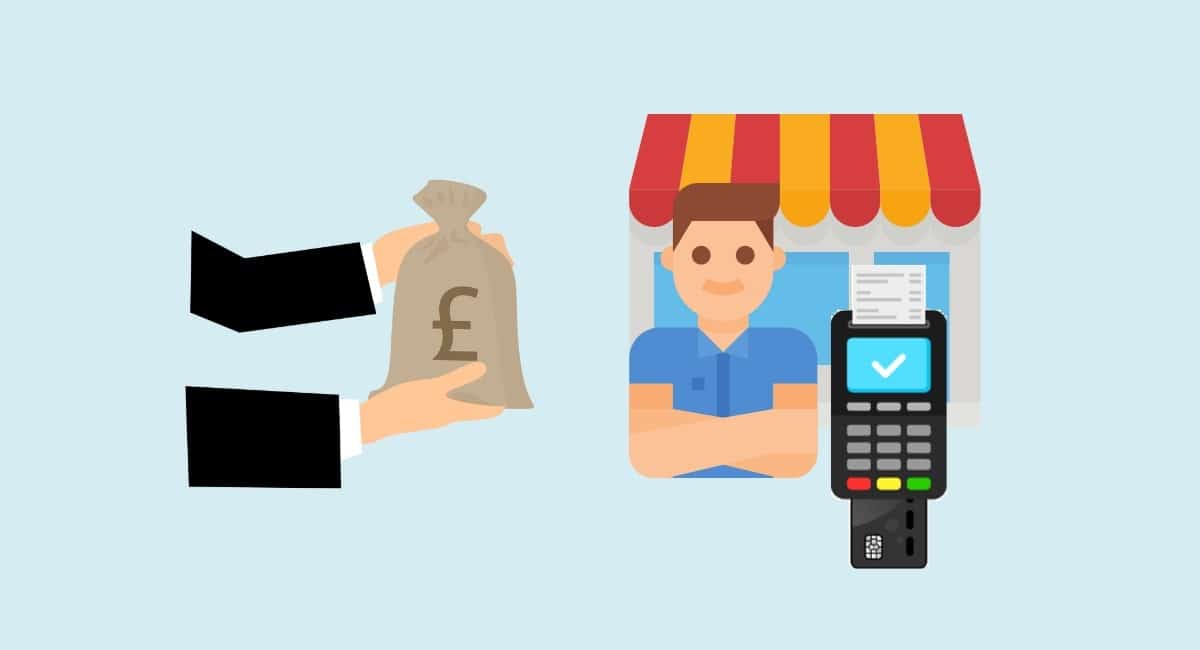The number of small and medium-sized businesses (SMEs) in the UK has grown steadily since year 2000, which also means that more than ever, there is a great need for small-business support. Some merchants look for loans, but another way to get capital is a cash advance.
In short, the main differences are:
Alternative: Considered a business overdraft? See how it works
How do loans work?
A loan is an amount borrowed for a specific use such as buying a car or house, or investing in assets or the refurbishment of a building. As opposed to short-term cash advances, loans are a longer-term debt provided by a lender and typically secured, i.e. you provide a guarantee that the loan will be repaid.
Loans can either be secured or unsecured:
- Secured loan: backed by a collateral, security or asset, which the lender can sell if you fail to make the required repayments.
- Unsecured loan: needs no guarantee or asset.
Loans require a thorough application and checks of your finances, income and assets and may take weeks to be processed. If your credit rating is low, you probably won’t qualify for a loan. Home ownership could also be a requirement for a loan as a collateral.
If a business does get a loan, they have to repay the amount via instalments, typically requested on a monthly basis. Every day, interest is added on top of the loan amount, so the longer it takes to repay, they higher is the total you pay back to the lender. If you miss a repayment, it is common to be charged a late-payment fee. If you want to pay back the entire loan earlier than the contracted repayment schedule, you may be liable to pay an early-repayment charge.
Why cash advances tend to be better for small businesses
While loans are more bureaucratic and typically provided by banks, cash advances are often more convenient for startups, new businesses or small ventures requiring an immediate infusion of capital. They are faster to get, sometimes as quick as hours to receive (if you fulfil requirements), and regarded as unsecured, temporary credit rather than long-term debt.
Loans are typically provided for a specific investment purpose, while cash advances are for fulfilling short-term requirements in the business. It is easier to qualify for the latter – in fact, many cash advance providers have approval rates of 80-90%, based on checks of your credit and debit card revenue over the past several months.
Cash advances don’t require a specific purpose. You can, for instance, purchase stock, pay urgent bills or perhaps invest in the refurbishment of business premises. It is an extra piece of funding to fulfil short-term needs, whether that’s related to a longer-term growth plan or just to stay afloat when business is struggling.
What can neobanks offer? Definition and types of challenger banks
A clear advantage of a cash advance is the flexibility of repayments. Loans require repayments via periodical, fixed instalments whether you can afford it or not. So when you have a slow month, you still need to pay the monthly instalment, or face a penalty fee.
A cash advance automatically takes off a percentage of all your debit and credit card sales, so if you don’t sell much, only a little is repaid. If you sell a lot, the % repayment fee adds up so you pay more that month – all very flexible. Given this flexibility, you may pay off everything within a few months, or it could take over a year.
Typically, cash advance providers can offer up to 100% of your average monthly card takings, but some of them can offer you more. It is also common they let you top up your advance after you have repaid a certain amount of the original advance total. Only card sales are considered, so you get to keep everything from your cash transactions.
The only fee you are charged is a flat amount that is added to the sum total you need to repay. There are no other fees or interest added, but it is generally expected you are able to repay the advance within a year through a percentage that is typically 15-20% (can vary widely). You can generally choose the loan amount and sometimes repayment percentage upfront, within the limits offered.




